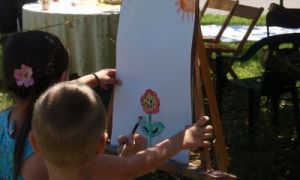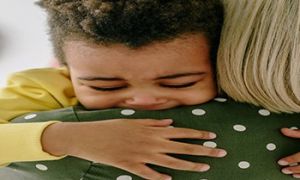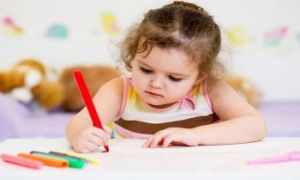

Phonics is a method used to teach reading and writing by developing learners' ability to hear, identify, and manipulate phonemes and associating these sounds with their corresponding letters and letter patterns. The following article provides information on Key Concepts Of Phonics, Why Phonics Is Important, Benefits of Teaching Phonics, How To Teach Phonics, Activities, and more.
"My Family" theme is an engaging and meaningful way to help toddlers and preschoolers learn about family structures, relationships, and the importance of family bonds. The following article provides information on My Family Themed Activity Ideas, Family Theme Children's Books, Importance Of My Family Theme, Goals For My Family Theme, Linking To The EYLF and more.
Reading books about diversity to children helps them understand and appreciate the many ways people can be different and yet similar. These differences can be in appearance, culture, language, beliefs, and abilities. The following article provides a list of children's books about diversity.
Celebrating New Year with young children can be a delightful experience filled with fun activities and meaningful traditions. The following article provides New Year Activities, Learning Goals and Linking To The EYLF and more.
Cooking with children can be a fun and an educational experience. The following article provides easy spaghetti recipes, including Spaghetti With Tomato Sauce, Spaghetti With Carbonora, Spaghetti With Spinach and Tomatoes, Spaghetti With Pesto and more.
Balloons are versatile, cheap, and can be used in a variety of different ways, including a range of different games for children. The following article provides the Benefits Of Balloon Play and Easy Balloon Games For Children.
Play is a crucial part of a child's development, and indoor activities can be just as enriching as outdoor ones. With the weather heating up, it's important to enable children to release their energy indoors. The following article provides fun and engaging indoor games for preschoolers to beat the heat.
Anxiety and fear are natural parts of growing up. They often indicate that children are learning to navigate and solve problems. The following article provides Effective Strategies To Support Children In Managing Their Anxiety, Creating A Safe Space, Identifying and Managing Triggers, Modeling Healthy Ways Of Handling Anxiety, Supporting Children In Understanding and Overcoming Fears and Anxities.
Engaging babies in the right activities can make a significant difference in a baby's development. The following article provides some brain-boosting baby games and activities that can help stimulate their minds and develop motor skills.
 Toddlers have a greater understanding of the world around them by this stage. Their cognitive development (also known as intellectual development and thinking skills) continues… Read More
Toddlers have a greater understanding of the world around them by this stage. Their cognitive development (also known as intellectual development and thinking skills) continues… Read More
 Infants begin to develop trust when parents begin to fulfil their needs. Such as changing an infant's nappy when needed, feeding on request and holding… Read More
Infants begin to develop trust when parents begin to fulfil their needs. Such as changing an infant's nappy when needed, feeding on request and holding… Read More
 Beginning at birth the construction of thought processes, such as memory, problem solving, exploration of objects etc, is an important part of an infant’s cognitive… Read More
Beginning at birth the construction of thought processes, such as memory, problem solving, exploration of objects etc, is an important part of an infant’s cognitive… Read More
 Toddlers want to do more on their own and do not like it when you begin to establish limits on their behaviour. Tantrums can become… Read More
Toddlers want to do more on their own and do not like it when you begin to establish limits on their behaviour. Tantrums can become… Read More
 Your preschooler is now able to focus their attention more accurately and is less influenced by distractions. The intensity of questions increase as your child… Read More
Your preschooler is now able to focus their attention more accurately and is less influenced by distractions. The intensity of questions increase as your child… Read More
 John Dewey is often seen as the proponent of learning by doing – rather than learning by passively receiving. He believed that each child was active,… Read More
John Dewey is often seen as the proponent of learning by doing – rather than learning by passively receiving. He believed that each child was active,… Read More
 Toddler advance and gains new skills in Gross Motor Development milestones achieved throughout earlier years. Co-ordination and challenges that could not be performed before such… Read More
Toddler advance and gains new skills in Gross Motor Development milestones achieved throughout earlier years. Co-ordination and challenges that could not be performed before such… Read More
 Erik Erikson developed a psychosocial theory to understand how we each develop our identities through eight stages of psychosocial development from infancy to adulthood. The… Read More
Erik Erikson developed a psychosocial theory to understand how we each develop our identities through eight stages of psychosocial development from infancy to adulthood. The… Read More
 At this point preschoolers begin to interact effectively with others. Play becomes more innovative and organized and “boyfriend” or “girlfriend” begins to emerge. Preschoolers have… Read More
At this point preschoolers begin to interact effectively with others. Play becomes more innovative and organized and “boyfriend” or “girlfriend” begins to emerge. Preschoolers have… Read More
 From now, babies begin to identify and respond to their own feelings, understanding other's feelings & needs and interact positively with others. A baby's social and… Read More
From now, babies begin to identify and respond to their own feelings, understanding other's feelings & needs and interact positively with others. A baby's social and… Read More

Fine motor skills have improved during this point, with increased concentration and patience. These improvements...
See more...
In the rhythm of early childhood, emotional storms are natural. Toddlers and preschoolers are still...
See more...
The development of writing skills depends on a variety of physiological and environmental factors. Children...
See more...© 2009-2025 Aussie Childcare Network Pty Ltd. All Rights Reserved.
